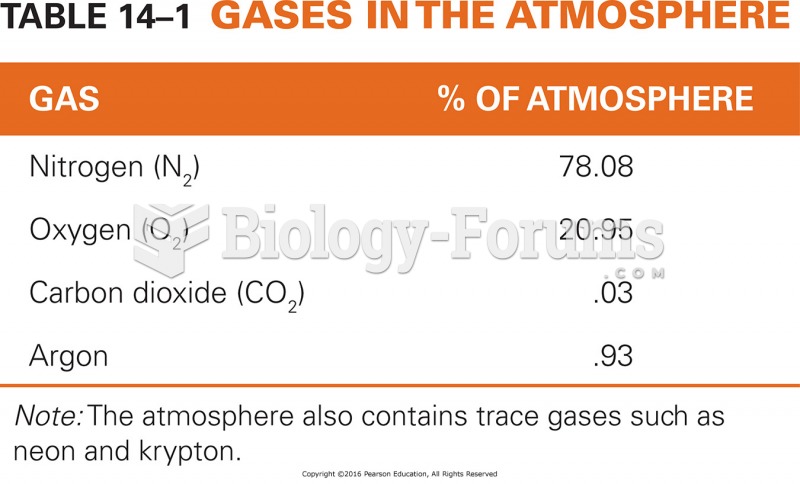|
|
|
There are more sensory neurons in the tongue than in any other part of the body.
Cyanide works by making the human body unable to use oxygen.
Chronic necrotizing aspergillosis has a slowly progressive process that, unlike invasive aspergillosis, does not spread to other organ systems or the blood vessels. It most often affects middle-aged and elderly individuals, spreading to surrounding tissue in the lungs. The disease often does not respond to conventionally successful treatments, and requires individualized therapies in order to keep it from becoming life-threatening.
Approximately 70% of expectant mothers report experiencing some symptoms of morning sickness during the first trimester of pregnancy.
In most cases, kidneys can recover from almost complete loss of function, such as in acute kidney (renal) failure.







